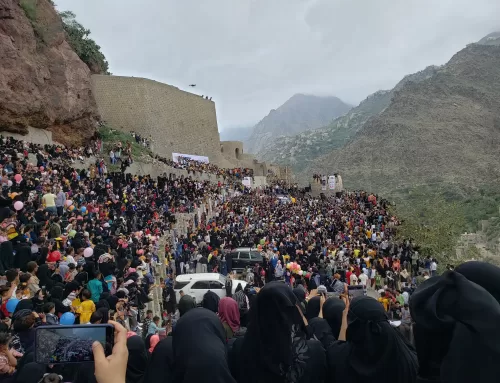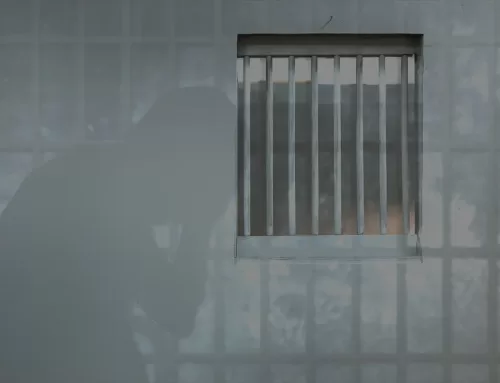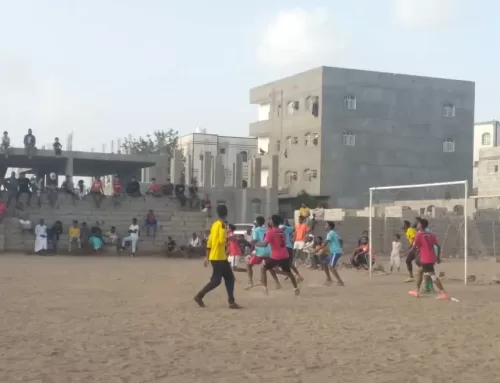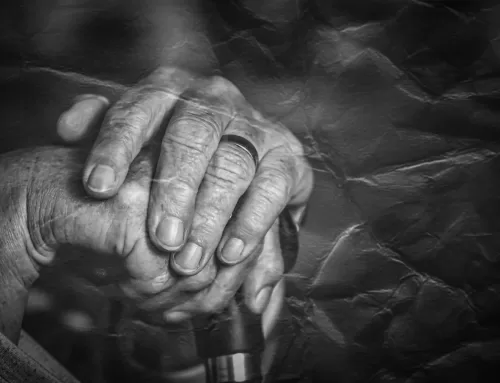The Fates of Hajjah Teachers
25 October 2021
Nearly three-quarters of public school teachers in 11 governorates have not received their salaries over more than four years. Male and female teachers have been standing proudly in front of their students, while barely able to provide a decent life for themselves and their families. They were devastated by the war. Depriving them of their meager salaries, the war has left them either as beggars, driven to commit suicide, or dead from disability.
As everywhere in Yemen, there are silent victims in Hajjah province who no one knows about, and no one investigates their stories, cases and causes of death. Some of their deep pain is depicted in these lines.
Teacher (Hamed), (pseudonym – 39 years), is from Hajjah city. His family consists of his wife and four children. Even after the salaries of staff and teachers were cut off in the fall of 2016, teacher Hamed continued to go to his distant school on foot, so as not to deprive his students of education.
Financial burdens had their toll on the teacher. His children demanded their school needs from him. He in turn promised them that he would provide them, but the money was never available. He searched for additional work, but could not find any. Even the people he used to borrow from refused to lend him anymore because he was heavily in debt.
Teacher Hamed started to go to work before his children wake up, in order to avoid hearing their demands. On September 8, 2019, his children woke up before he leave the house, and started to scream and cry of hunger. His young son said to him: “Please, dad, bring us some dry loaf of bread, or rooti [bakery bread], so that we may have breakfast, for we are dying of hunger, and we spent two days without food.”
He promised them that he would go immediately to fetch food for them to eat, but he went out and did not return. He fell on the ground while he was on his way to the old market and died from what was said to be a stroke.
Teacher Hamed is not the only victim of poverty and destitution. There is also teacher (Radwan), (37 years old), from the Khairan Muharraq district.
On the morning of Tuesday, October 15, 2019, his wife had left with her children to her father’s house to seek help. His son had a fever and severe cough but he could not take him to the clinic because he did not have the money, for he is a teacher and his salary is cut off.
On his way to school, one of his students stopped him to tell him that his wife had taken his son to the clinic, but the child has passed away. The teacher was shocked by this news, so he called his wife’s father. who confirmed to him that his son died of fever.
The teacher could not control himself and immediately headed to Wadi Al-Arid, which is one kilometer away from the village, and hanged himself on the branch of one of the large trees in the valley, to end his life there.
In the same context of tragedy of the interruption of salaries in the education sector, there was also teacher Suad (pseudonym, 38 years), who works in a school in Hajjah city. She has six children, the oldest of whom is 11 years old. Due to the poor conditions and the lack of salaries, her husband went two years ago to look for work, but he did not return and contact with him has been lost since then. Souad is now taking full responsibility herself for feeding the little ones, paying house rent, etc., but she had nothing but her salary which was cut-off. She knocked on all the doors in vain. She had no other way but to go to the market and the shops, to beg for a bite of bread for her children. Souad turned from a teacher to a beggar in the markets and shops.
There was also teacher Ibtisam (pseudonym,38 years), who lives in Hajjah, divorced and supports her family and her seven-year-old daughter out of the salary she gets from her job in the education sector. After the salaries were cut off in the fall of 2016, her suffering and that of her family doubled. She was afflicted by a tumor on her neck. Other injuries could have been avoided if she had the cost of treatment. Some of her fellow teachers collected a small sum for her treatment. In the hospital, the doctors told her that she should travel to Sana’a for treatment, but she was unable to do so due to her living conditions, so her situation worsened. On March 3, 2021, she died at her mother’s house, leaving her daughter in the hands of her mother.
Another painful story happened to (Saleh), who was teaching in a school in Hajjah. Due to the interruption of salaries, he was unable to pay the rent of the house and provide for his family, so he and his wife had to work in the same school where he teaches.
(Saleh), 40, started to sell potatoes, eggs and some groceries to children, including his students. He said that this situation causes him a lot of embarrassment, but necessity provides its own.
“The school was looking for a female worker to clean the school’s bathrooms, the administration’s wing and classrooms, so I told the principal that I knew a woman in need, who could do this work for a small sum. I brought my wife to do this work without letting the principal and my fellow teachers know who she is,” he said. “You can imagine the pain when I see my wife every day at school doing the cleaning. This situation makes me cry every day, but it is for the sake of living, and what can we do? I got diabetes from worrying,” he concluded.
There is also (Ali), a teacher and father of six girls, five of whom study in schools, in the Uzlah [= sub-district, settlement] of Rab’ Masoud, Bani Qais District, Hajjah Governorate, in different classes.
Ali (37 years old) says that he had to take his daughters out of school because he was unable to meet their needs of bags, notebooks, pens, and school expenses, due to the interruption of salaries.
Endless stories, we conclude in this blog with another teacher (39 years old) who told us with bitterness about his suffering with the interruption of salaries: “My child, who was always used to stand in front of the door of the house every morning before she goes to her school, waiting for me to give her one hundred riyals for school expenses, then we separate so she goes to her school and I go to my school where I teach.” He continues, with his eyes full of tears, “I told her, ‘my daughter, today, by God, I don’t have any money’. Then I kissed her on the forehead. She told me, ‘It’s okay, Dad, it’s not necessary,’ but she was talking with tears in her eyes. I couldn’t stand this situation.”
All of that is just part of a painful reality caused by the interruption of government sector salaries in Yemen. Stories, most of which take place behind closed doors, but stifle their victims silently, and do not find their way into the world.






